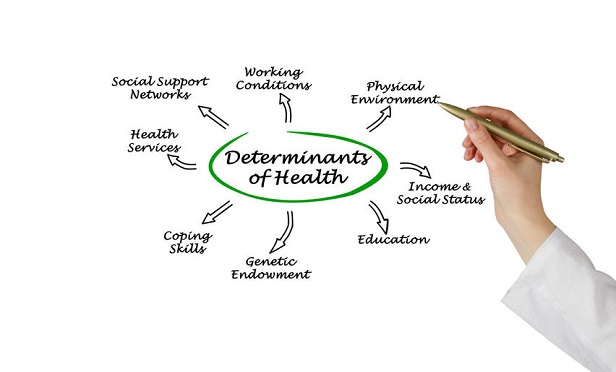 Looking at an injured worker holistically and considering his or her overall situation can prevent so-called 'creeping catastrophic' claims. (Credit: arka38/Shutterstock)
Looking at an injured worker holistically and considering his or her overall situation can prevent so-called 'creeping catastrophic' claims. (Credit: arka38/Shutterstock)
Getting the best outcomes for injured workers involves much more than just treating the actual injury. Their recoveries depend on a variety of additional factors such as whether they have access to healthy food and clean water, their ability to travel to medical appointments and the extent of support they have.
Increasingly, workers' compensation payers are finding that these social determinants of health (SDoH) have a significant impact on the healing process and a worker's ability to return to work. While these issues may not be a direct responsibility of stakeholders, addressing them to whatever extent possible can vastly improve and expedite the process.
Many of us already do this when catastrophic injuries are involved. We believe SDoH could and should become a critical review of a workers' compensation claim as a way to improve overall health and well-being among the workforce and create better medical outcomes.
Two experts were on hand for our most recent Out Front Ideas webinar to provide their insight and outline strategies the industry can take to influence SDoH factor.
Want to continue reading?
Become a Free PropertyCasualty360 Digital Reader
Your access to unlimited PropertyCasualty360 content isn’t changing.
Once you are an ALM digital member, you’ll receive:
- All PropertyCasualty360.com news coverage, best practices, and in-depth analysis.
- Educational webcasts, resources from industry leaders, and informative newsletters.
- Other award-winning websites including BenefitsPRO.com and ThinkAdvisor.com.
Already have an account? Sign In
© 2024 ALM Global, LLC, All Rights Reserved. Request academic re-use from www.copyright.com. All other uses, submit a request to [email protected]. For more information visit Asset & Logo Licensing.








